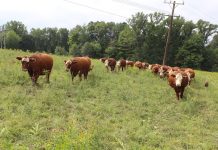Behold the wheel.
In form and function, the wheel – save perhaps the lever – is unmatched.
Despite being as old as dirt and the lowest of low tech, its design is so pure and purpose so simple that the most cutting remark anyone can make of an idea or plan is, “Hey, why reinvent the wheel?”
Worth considering. And yet, negotiators in global ag trade talks need to ask themselves that very question, according to a provocative working paper by Tufts University researcher Tim Wise.
The paper, titled “The Paradox of Agricultural Subsidies,” argues that today’s global farm subsidies – an estimated $300 billion per year and the killing fields of the World Trade Organization’s ag trade talks – have been miscalculated and often misapplied to farmers.
More importantly, argues Wise, these errors have led world ag trade talkers into the blind alley.
If the $300 billion subsidy math was corrected, WTO negotiators could find the way to their free-trade, spread-the-wealth goals through policies as simple and as proven as the good old wheel.
Paradox. “The paradox,” explains Wise from his Massachusetts office, “is that if trade talks continue on their current path, developing nations with major ag exporting potential, like China and Brazil, will gain but their farmers won’t.
Their ‘end-all-subsidies’ approach” – the developing world’s new rallying cry – “isn’t the answer.”
Instead, if ag subsidies were more accurately calculated and more closely assigned it becomes evident that what’s being counted as farm subsidies often includes other “market supports” like tariffs, import quotas and price supports.
Benefits. The benefits of these supports don’t fall just to producers, Wise offers, but to consumers, also. However, they often are tied to the farmer’s tail and left there.
Another indirect big winner in today’s (and likely tomorrow’s) ag support game is global agribusiness.
Wise quotes a 1998 study that notes “there is concern not only that oligopolistic retailing and processing structures will lead to abuse of market power but that the lion’s share of benefits of any future reforms in the farming sector may be captured by the processors and retailers …”
It’s crucial to differentiate between ag subsidies and supports, Wise argues, because today’s WTO ag talks are focused almost entirely on subsidies.
All wrong. If the facts guiding the talks are wrong, he surmises, then the final deal will be wrong.
For example, when discussing the use of “reference prices” in trade talks, Wise points out that trade yakkers love to use New Zealand as the ideal for the global dairy trade.
This example, however, is flawed because of the nation’s grass-based “unusually low production costs” and its contrived dairy export prices.
“Reference price,” he correctly notes, “does not equal market price.”
In short, any WTO dairy deal that uses New Zealand as its reference price will crush dairy farmers the world over.
Trade talks. All this bad math has led trade talks badly astray. How far can be seen in the World Bank’s own estimate of what trade liberalization will deliver.
The bank estimates that freer trade will push developing country income up by a tiny 1.5 percent over the next 10 years while rich nation income will climb by an even tinier 0.5 percent.
And we’re all busting our guts for this, Wise seems to ask?
Whatever global ag subsidies truly are – and Wise reckons they’re well under the accepted, and wrong, $300 billion per year – eliminating them “will not alone have the price impacts its proponents suggest …”
A better deal. A far better trade deal for all farmers is one that includes other, easier negotiated elements.
Key components would be limits to price-flattening export dumping by major producers, some form of international supply management and ways to limit the market power of agribusiness conglomerates.
Daniel de la Torre Ugarte, a researcher at the University of Tennessee’s Agricultural Policy Analysis Center, has read the Wise paper and believes it is on the right track.
“Free trade talks for agriculture must include tools like some form of supply management that we know work,” said the APAC researcher.
“The WTO doesn’t need to reinvent the wheel. It only has to use it differently.”
(The author is a freelance ag journalist who lives in Delavan, Ill. He can be reached via e-mail at: AGuebert@worldnet.att.net. Read his columns online at www.farmanddairy.com.)
© 2004 ag comm













